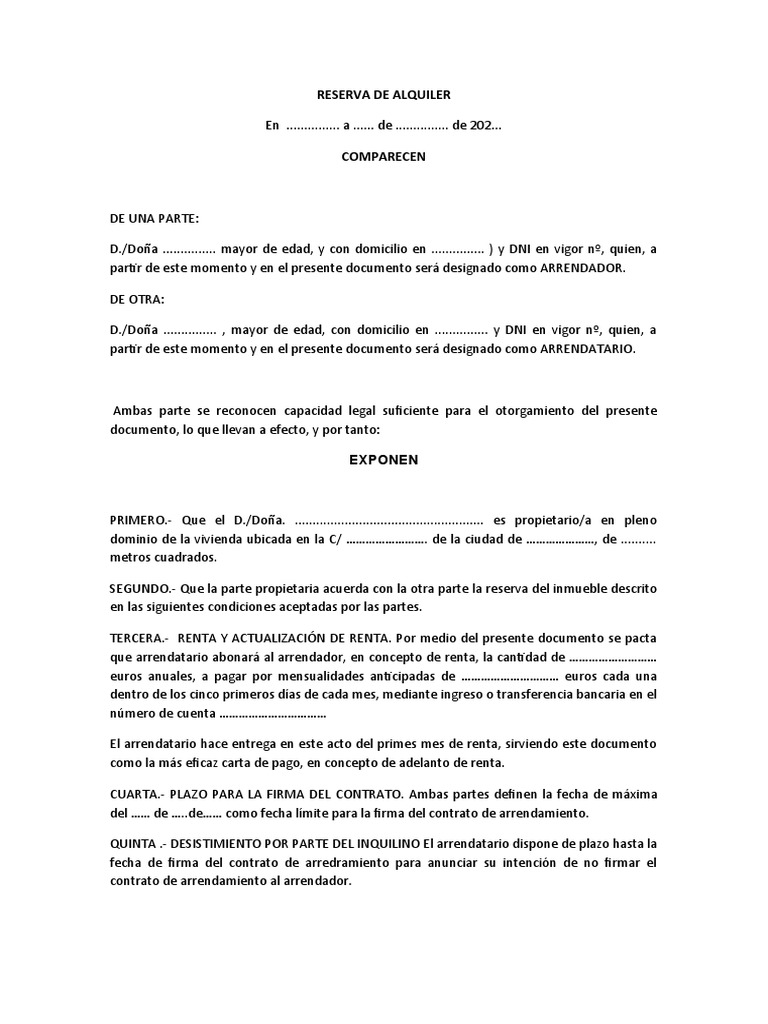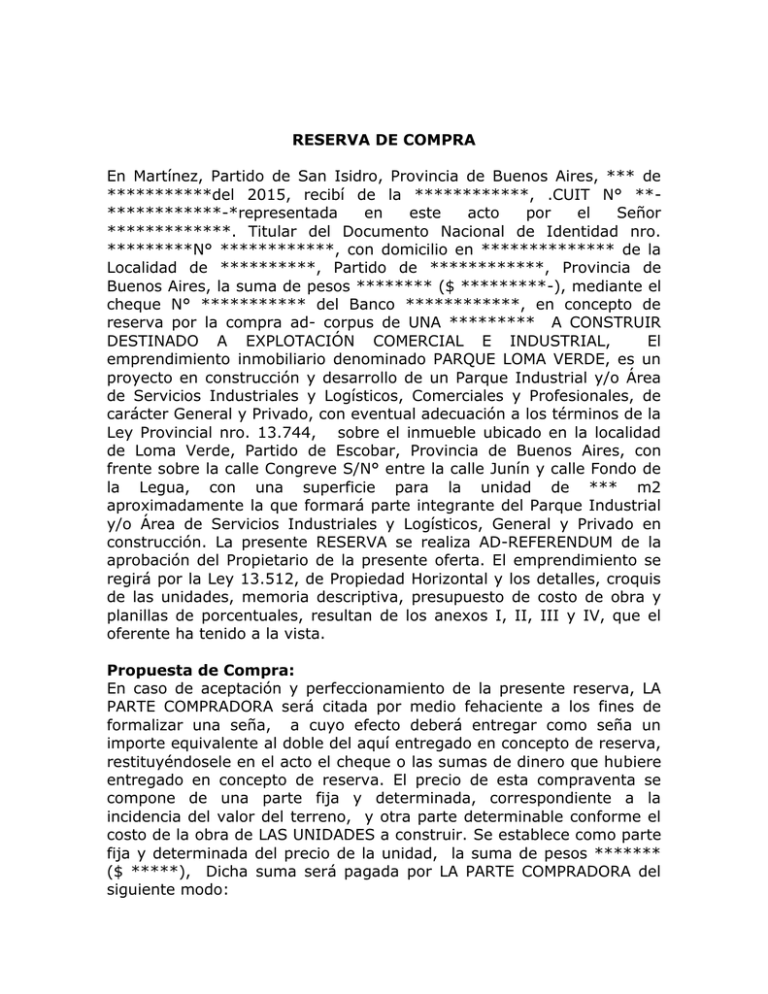Model Reserva is a term that has gained significant traction in the world of business and economics. As we delve deeper into understanding what it entails, it becomes evident that this concept plays a crucial role in various industries. Whether you're a student, entrepreneur, or professional, comprehending the nuances of model reserva can provide valuable insights into strategic planning and resource allocation.
In today's fast-paced economic landscape, businesses are constantly seeking innovative ways to optimize their operations. Model reserva emerges as a vital tool in this pursuit. By exploring its applications and implications, we can better appreciate its significance in achieving sustainable growth and competitive advantage.
This article aims to provide a detailed exploration of model reserva, covering its definition, benefits, implementation strategies, and real-world examples. With a focus on delivering actionable insights, we hope to equip readers with the knowledge needed to leverage this concept effectively in their respective fields.
Read also:Anakhalifaaa Leaks Unveiling The Truth Behind The Controversy
Table of Contents
- Introduction to Model Reserva
- What is Model Reserva?
- A Brief History of Model Reserva
- Benefits of Implementing Model Reserva
- Steps to Implement Model Reserva
- Real-World Examples of Model Reserva
- Challenges in Adopting Model Reserva
- The Future of Model Reserva
- Model Reserva vs. Traditional Models
- Conclusion and Next Steps
Introduction to Model Reserva
Model reserva has become a buzzword in contemporary economic discussions. At its core, it represents a strategic framework for managing resources efficiently. This section will explore the fundamental aspects of model reserva and its relevance in today's market.
In an increasingly competitive environment, businesses must adopt innovative approaches to stay ahead. Model reserva offers a solution by providing a structured method for optimizing resource allocation. By understanding its principles, organizations can enhance their operational efficiency and achieve better financial outcomes.
What is Model Reserva?
Model reserva refers to a systematic approach to resource management that emphasizes flexibility and adaptability. It involves creating a reserve capacity within an organization's operational framework to accommodate fluctuations in demand and supply. This concept is particularly useful in industries where unpredictability is a common challenge.
Key Features of Model Reserva
- Flexibility in resource allocation
- Ability to adapt to changing market conditions
- Focus on long-term sustainability
- Enhanced risk management capabilities
A Brief History of Model Reserva
The origins of model reserva can be traced back to the early 20th century when economists began exploring ways to manage economic uncertainties. Over the decades, this concept has evolved significantly, incorporating advancements in technology and data analytics. Today, model reserva is a cornerstone of modern business strategy.
Historical Milestones
- 1930s: Initial concepts of reserve management
- 1980s: Integration with supply chain management
- 2000s: Adoption of digital tools for enhanced implementation
Benefits of Implementing Model Reserva
Implementing model reserva offers numerous advantages for businesses. From improving operational efficiency to enhancing customer satisfaction, the benefits are multifaceted and impactful.
Top Benefits
- Optimized resource utilization
- Improved adaptability to market changes
- Enhanced customer experience
- Increased profitability
Steps to Implement Model Reserva
Successfully implementing model reserva requires a systematic approach. Below are the key steps organizations can follow to integrate this concept into their operations.
Read also:Andiegen Leaked Unveiling The Truth Behind The Controversy
Step-by-Step Guide
- Conduct a thorough analysis of current resource usage
- Identify areas for reserve capacity creation
- Develop a comprehensive implementation plan
- Monitor and evaluate performance regularly
Real-World Examples of Model Reserva
Several industries have successfully implemented model reserva to achieve remarkable results. Below are some notable examples:
Case Study: Airline Industry
Airlines have long utilized model reserva to manage seat inventory and optimize flight schedules. By creating reserve capacities, they can accommodate last-minute bookings and unexpected changes in demand, ensuring maximum revenue generation.
Challenges in Adopting Model Reserva
While model reserva offers significant benefits, its adoption is not without challenges. Organizations must address various obstacles to ensure successful implementation.
Common Challenges
- Resistance to change within the organization
- High initial investment costs
- Complexity in integrating with existing systems
The Future of Model Reserva
As technology continues to advance, the future of model reserva looks promising. Innovations in artificial intelligence and machine learning are expected to enhance its capabilities, making it an even more powerful tool for businesses.
Predicted Trends
- Increased reliance on AI-driven analytics
- Integration with blockchain technology for transparency
- Expansion into emerging markets
Model Reserva vs. Traditional Models
Comparing model reserva with traditional resource management models highlights its distinct advantages. While traditional models often focus on rigid structures, model reserva emphasizes flexibility and adaptability, making it better suited for modern business environments.
Comparison Table
| Aspect | Model Reserva | Traditional Models |
|---|---|---|
| Flexibility | High | Low |
| Adaptability | Excellent | Limited |
| Cost Efficiency | Optimized | Less Efficient |
Conclusion and Next Steps
In conclusion, model reserva represents a powerful tool for businesses seeking to optimize their operations and achieve sustainable growth. By understanding its principles and implementing it effectively, organizations can gain a competitive edge in today's dynamic market.
We encourage readers to explore this concept further and consider how it can be applied in their specific contexts. Don't hesitate to leave a comment or share this article with others who may benefit from its insights. For more information on related topics, be sure to explore our other articles.
References:
- Smith, J. (2021). "The Evolution of Resource Management." Journal of Business Strategy.
- Johnson, R. (2022). "Model Reserva in the Digital Age." Harvard Business Review.
- World Economic Forum. (2023). "Future Trends in Resource Management."


